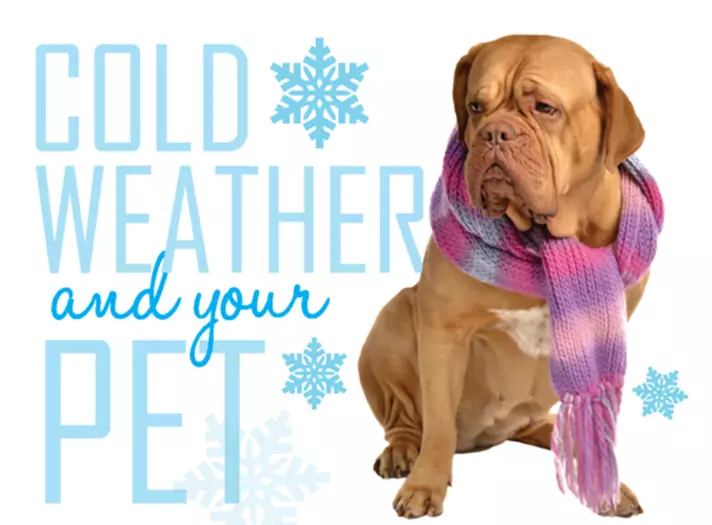Cold Weather Pet Hazards

PRESS RELEASE
For immediate release:
January 17, 2024
For more information, contact:
Linda Lowe, Public Information Officer
Department of the Environment
(301) 836-2115 (cell); lmlowe@co.pg.md.us
Cold Weather Pet Hazards
Tips to keep your pets safe in extreme temperatures
LARGO, MD – Pet parents are encouraged to keep their pets inside during cold weather, even if they’re considered cold-weather animals. This will prevent serious threats to your four-legged family member’s health. But when you take them out for a walk or the potty, the Prince George’s County Animal Services Facility and Adoption Center (ASFAC) reminds pet owners to remember that if it’s too cold out for you, then it’s too cold out for your pets and to monitor their exposure to winter elements throughout the season closely.
If your dog stays outdoors in cold weather, County law requires the following:
- All domestic animals except livestock are prohibited from being kept outdoors when the effective outdoor wind chill index is 32 degrees Fahrenheit.
- A doghouse of the proper size that is dry, draft-free, and raised off the ground.
- A wind flap attached to the doghouse to help keep cold air out, and warm air in.
- Bedding that is non-absorbent, such as straw or wood shavings, keep the dog warm.
- Routinely check your pet’s drinking water to ensure it is not frozen and use a secured container to prevent tipping.
If you see a pet out in the cold without proper shelter, contact ASFAC at (301) 780-7200. Pets left outside without food and proper shelter are at risk of hypothermia, frostbite, and death. Read more information on proper shelter and care for your dog here.
Other tips pet owners should consider:
- Keep kittens, puppies under six months, and small or short-haired dogs inside.
- Increase the amount of food for outdoor dogs as they need more calories in the winter to produce body heat.
- Never let your dog off their leash in the snow or ice; they can become disoriented and lost, even in a familiar place. Be sure your pet has an ID tag, microchip, and sturdy leash.
- Wipe your pet’s paws after an outing with a wet cloth to remove any ice or chemicals used to melt snow on sidewalks that can irritate their paws. Salt can irritate or burn and cause vomiting; in some pets, it can even cause seizures. Antifreeze has a sweet, attractive smell to pets and can be deadly if ingested.
- Don’t leave your pet in a closed car in the winter because it can be as deadly as the summer heat.
- If you have bunnies who live outside, ensure they have a warm, dry hutch with plenty of bedding that is out of the wind. Water is important too, as is some extra food. Cover the hutch with a tarp.
- If outdoor cats are in your area, bang loudly on your car hood before starting the engine to give them a chance to escape. Cats like to seek shelter from the cold and can be under the hood of your car.
For more information about pet care, visit www.princegeorgespets4us.com, or to report animal cruelty incidents, contact ASFAC at 301-780-7200.
# # #
